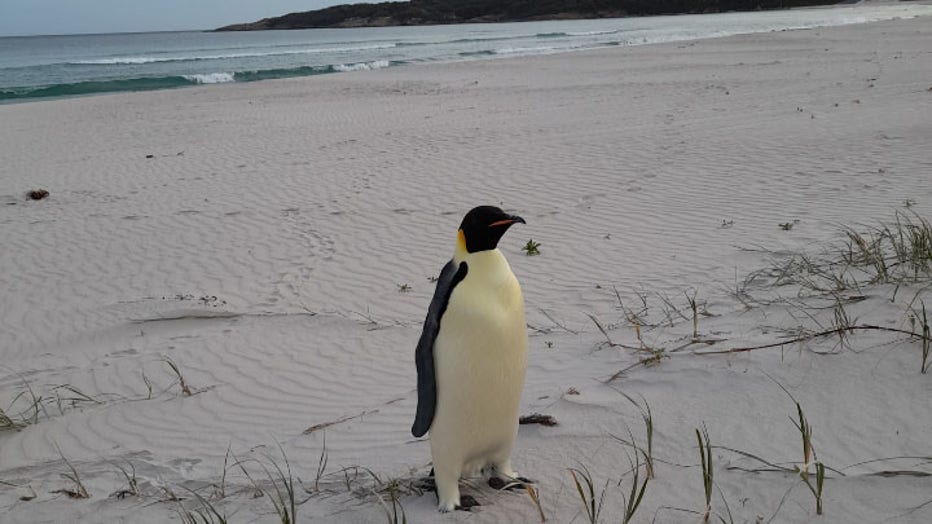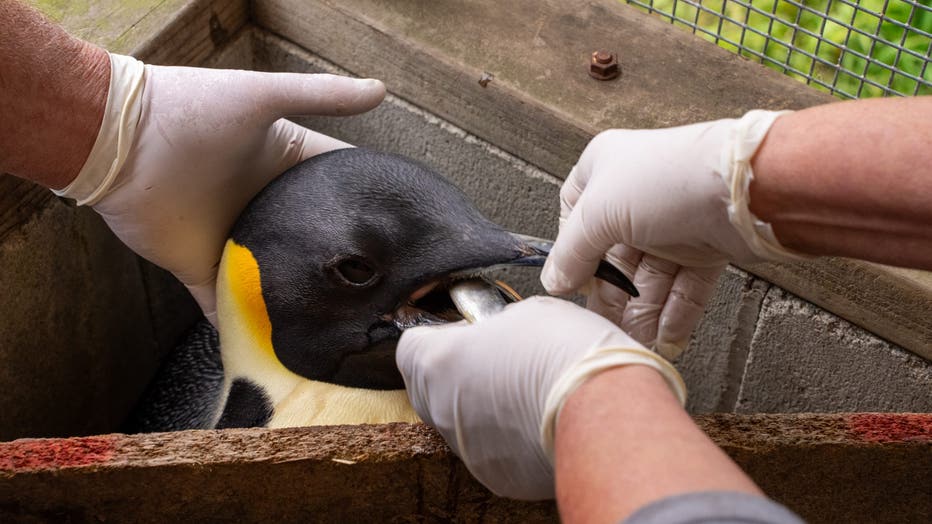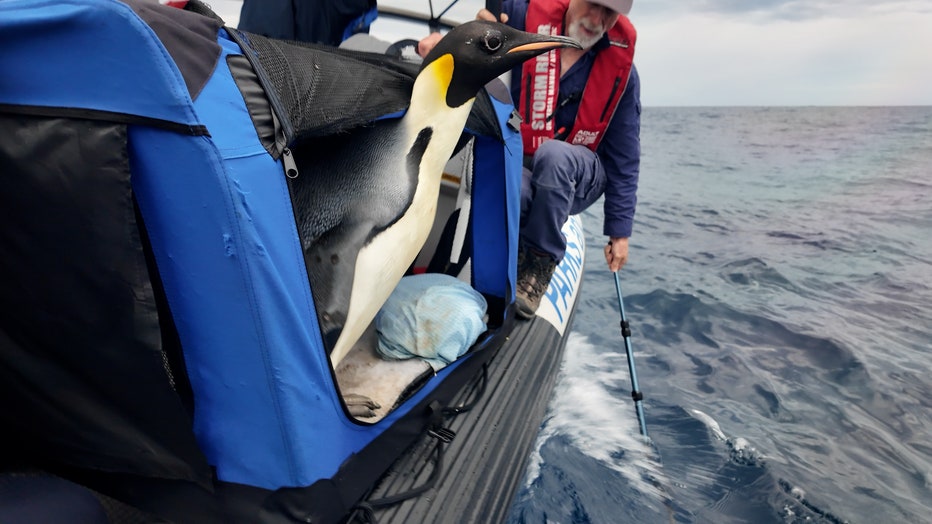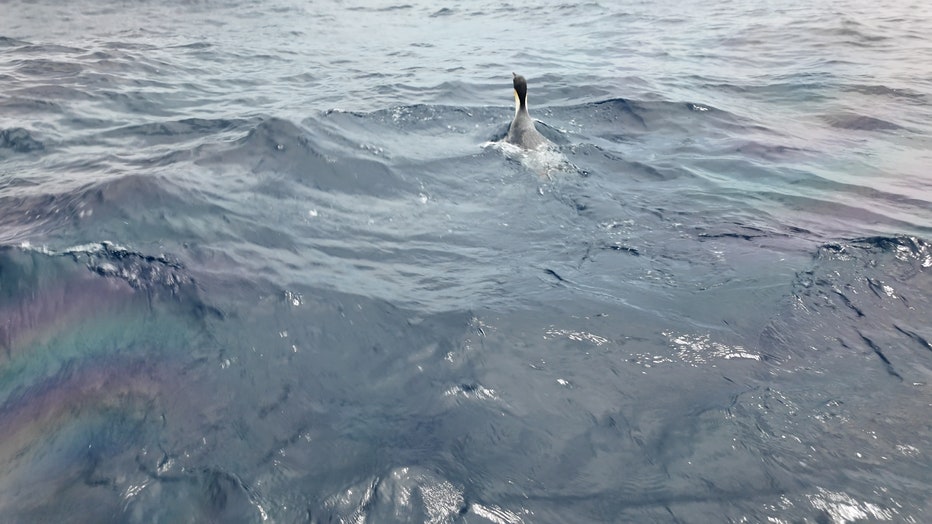Lost penguin’s 2,000-mile journey to Australia ends with return to Southern Ocean
Image: Australia’s Department of Biodiversity, Conservation and Attractions (DBCA)
A lone emperor penguin that had swam itself 2,000 miles from home has been return.
The Antarctica native was found on a sun-drenched beach in Denmark, Western Australia, on Nov. 1.
Underweight and far from his natural habitat, the penguin, dubbed Gus, was taken in by an experienced local seabird rehabilitator, Carol Biddulph.

Courtesy: Miles Brotherson/DBCA
After 20 days of care, he was returned to the Southern Ocean off the coast of Australia to hopefully make his way back home to the icy waters of Antarctica.
Australia’s Department of Biodiversity, Conservation and Attractions (DBCA) said the Gus passed several veterinary health checks and was ready to be released.
He’d gained 3.5kgs (7.7 lbs.) under Biddulph’s care, and finally began drinking salt water from a tub.
"He was very thin and so we had to go through a gentle process of refeeding him, not too fast, not too slow, just right, introducing fluids, then slurry towards whole fish," she said. "And now he's on whole fish only. So he's being fed three times a day and he's taking usually about 20 mulies (pilchards) per feed per day."

Image: Australia’s Department of Biodiversity, Conservation and Attractions (DBCA)
PHOTOS: See lone emperor penguin 1st to swim from Antarctica to Australia
She and her husband, Graham, went along on the ride to the middle of the ocean to release Gus, to give him familiar faces and voices to help with the stress.
"As a sea bird rehabilitator, there's no second chances, there's no soft release. It's a hard release," she said. "So you have to make sure he's in good condition, he's up to weight, his plumage is impeccable, that his salt gland is operating well and that's all I can do. The rest is up to him."

Image: Australia’s Department of Biodiversity, Conservation and Attractions (DBCA)
With the warm weather approaching in Australia, the experts knew the window of opportunity to keep Gus safe was closing.
He was released off the southern coast of Western Australia on Wednesday, Nov. 20.

Image: Australia’s Department of Biodiversity, Conservation and Attractions (DBCA)
"I'm sure Gus is hardwired to know which direction to take to get home," Biddulph said.
The Source: Photos and information in this article were sent to FOX Television Stations via email from the Australia’s Department of Biodiversity, Conservation and Attractions (DBCA). This story was reported from Detroit.

